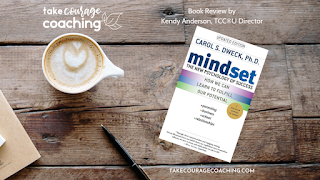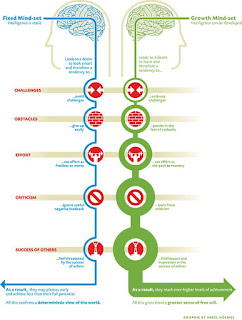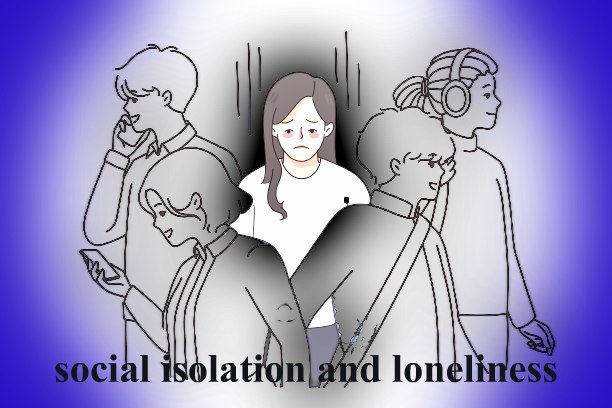Mindset: The New Psychology of Success
The book Mindset: The New Psychology of Success was written by Carol Dweck, psychology professor at Stanford. It’s one of the most popular psychology and personal development books out there today.
The book very well resonates with my life experience. Everything I achieved in life was based purely on the growth mindset.
In the summary, you will learn five main things from the book:
1. The real difference between the fixed and the growth mindset.
2. How your mindset can differ for different areas of life. In other words, we all have a growth approach to some areas of life and a fixed approach to others.
3. What kind of results the different mindsets give in sports, business and relationships.
4. How the wrong kind of praise leads to the fixed mindset. You will learn how to correctly praise your children.
5. In the end, we will answer the ultimate question – is it possible to change your mindset?
THE FIXED MINDSET
If you believe that your personal qualities and characteristics are carved in stone, that creates an urgency to prove your worth over and over again. The fixed mindset is a heavy burden.
You believe that it’s not enough just to succeed, it’s not enough to look smart and talented, you have to be practically flawless, and you have to be perfect right away, from scratch, without any effort.
In the fixed mindset, everything is about the outcome. If you fail or if you aren’t the best, everything was wasted.
People with the fixed mindset believe that an ability shows up on its own, before any learning and persisting through failure. You either have it or you don’t. It’s either in your genes or it isn’t.
The fixed mindset doesn’t allow people the luxury of becoming something. They have to already be. That’s why they’re trying to prove that they’re special, even superior at all costs.
Consequently, they might go looking for a company of people who are even worse off than they are, only to feel better about themselves.
With the fixed mindset, self-esteem is also wrongly placed. Usually people with the fixed mindset believe that if you’re successful, you are better than other people and then you can look down on them.
With the fixed mindset, you might even be prone to abusing less successful people and having them grovel to feel or appear more important. It’s the fastest way to damage relationships.
Many fixed mindset people mobilize their resources, not for learning, but simply to protect their egos.
A very obvious problem that arises from this kind of a mindset is: If you’re somebody when you’re successful, what are you when you’re failing?
The question already implies that with the fixed mindset, an act of failing can easily be transformed into an identity – I am a failure.
With the fixed mindset, when you’re avoiding being a failure, you thrive when things and tasks are safely within your grasp. The moment you get out of your comfort zone, when things get too challenging, or when you don’t feel smart or talented, you simply lose interest.
While people with the fixed mindset get a thrill from things that are easy, people with the growth mindset get a thrill from what is hard. For the latter, the hard things are the fun ones.
Why would you spend all the time proving how great you are, when you could be getting better? Why hide deficiencies instead of overcoming them?
Many people who suffer from the fixed mindset believe that the world needs to change and not them.
They feel entitled (feeling entitled is one of negative cognitive schemas) to something better – a job, house, relationship or whatever. They assume the world should recognize their special qualities and treat them accordingly, without them investing any effort.
Unfortunately, effort is one of the most terrifying things for the fixed mindset people. There are two reasons for that. Firstly, great people shouldn’t put in any effort to be great. They are simply special.
The second reason is that effort robs you of all your excuses. Zero always invites vivid imagination of how successful you could be if you tried.
For example: If I decided to take good care of my health, I could be on a magazine cover. If I decided to take good care of my wealth, I could be a successful investor.
In the fixed mindset, you’re afraid of losing a positive label when you get one, and earning a negative one. That’s why people with the fixed mindset often pretend to be better than they are, turn to lies and dishonesty, and are influenced by negative stereotypes.
For the growth mindset people, on the other hand, it’s much easier to take what they can and what they need even from a threatening environment.
THE GROWTH MINDSET
It’s absolutely true that we all differ in our initial talents, aptitudes, interests, personality characteristics and temperaments.
But the growth mindset emphasizes the fact that we can all change, grow and progress through efforts, application and experience.
That kind of an underlying belief creates a passion for learning. In the growth mindset, it’s inconceivable to have a goal with a sense that you can actually achieve it, and then do nothing about it.
That doesn’t mean that anyone can be the next Einstein, Beethoven or Elon Musk only with proper motivation. But it definitely means that the true potential of a person is unknown and unknowable.
It’s impossible to say what one can accomplish with years of passion, training and toil. The growth mindset also doesn’t indicate that failure is not a painful experience. But in the growth mindset, failure doesn’t define you.
Having the growth mindset doesn’t protect you from the pain of failure. But failure doesn’t define you. A failure is only a temporary problem to be faced, dealt with, and learned from.
The hallmark of the growth mindset is a passion for stretching and pushing yourself and sticking to your goals, especially when things are not going well and you have to persist through very challenging times.
People with the growth mindset are very much aware that it takes time for potential to develop and blossom. An assessment or a test score at one point in someone’s life has little value in understanding someone’s ability and even less their potential to succeed in the future.
Out of this way of thinking also comes the greatest weapon of the growth mindset people – determination. So, make learning your priority and combine it with determination to persist through setbacks and failure.
It’s kind of ironic that people with the fixed-mindset hunger being at the top, but usually the top is the place where many growth-minded people arrive as a by-product of their enthusiasm and love for what they do.
And remember, any difficulty that you face only means you need to apply more effort.
It’s not always the people who start out the smartest who end up the smartest. – Carol Dweck
THE ULTIMATE QUESTION – IS IT POSSIBLE TO CHANGE YOUR MINDSET?
The good news is that you can always change or upgrade your mindset. Just by knowing about the fixed and the growth mindset, you can start thinking, reacting and seeing yourself, others and the world in new ways.
Actually, all people are born with high curiosity and a love of learning, but the fixed mindset sooner or later stifles the desire to explore and learn. Luckily, the learned fixed mindset can slowly be unlearned.
The book has many recommendations for how to learn the new growth mindset. Below are my five favorite suggestions:
1. When things get hard and you want to quit or you get bored, tired, dizzy or hungry, don’t fool yourself. Put yourself in the growth mindset by picturing new brain connections forming as you meet the challenge and learn. Learn to work harder and to not let go of things when they get hard.
2. Don’t surround yourself with people who are in a worse position than you are just to feel better about yourself. Instead seek people who can give you constructive criticism. If you’re the smartest (or richest, or the most skillful etc.) person in the room, you’re in the wrong room.
3. Analyze your heroes and people who outdid you in the past – do they poses extraordinary abilities or did they just use better strategies, practiced harder, and worked their way through obstacles? You will realize that many people who outperform you just invested more effort.
4. Define your success with learning and improving, not merely winning. Admit and correct your deficiencies and enjoy the process. You can only thrive if you do self-correction. A growth minded person is not a judge, they’re a guide – to themselves, others or the company that they work for.
5. True self-confidence is about possessing the courage to be open, to welcome ideas and change regardless of their source. Real self-confidence is not reflected in a title, a fancy car, an expensive suit or a series of business acquisitions. Real self-confidence is reflected in your mindset, in your readiness to grow.
In summary – Did I win or did I lose? Those are the wrong questions. The correct question is: did I put in my best effort?
If you put in your best effort, you might be outscored, but you will never lose. Learn to live by the rule to apply yourself each day to becoming just a little bit better. By dedicating yourself to the task of becoming a little better each and every day over a period of time, you will become a lot better.
Change can be hard, but no one ever said it wasn’t worth it.
And beware of success, because it can quickly kick you into the fixed mindset and thinking “I won because I have talent. And because I have talent, I will keep winning.”
Success can easily lull you, it makes even the most ambitious people complacent and sloppy. Never forget that innate talent is not the wise goal. Expanding skills and knowledge is.
I hope you enjoyed the summary. In the book, you can find many examples from schools, sport and business, showing how people with the growth mindset prosper with time, and people with the fixed mindset suffer the consequences of weak underlying beliefs.
It’s absolutely a must-read book and I hope this summary convinced you. The growth mindset also goes hand in hand with the kaizen mentality in business to constantly improve and never give up.









Powerful